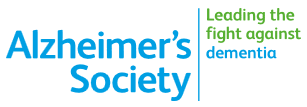
We had 14 members today. Everyone enjoyed having lots of chats and then Lisa introduced a multiple-choice picture quiz. Susanne and Sheila did really well in the quiz with 15 out of 20. James Le Bec then joined us and everyone enjoyed some music favourites to start with and this followed with the music quiz and a Countdown word quiz at the end for a bit of a challenge.
Eon then joined us for the exercises, and this followed with Lisa calling the Bingo numbers. There were 2 winners today. John and Audrey and Colin Pulvernis.
- Details
- Written by editor
We have 25 members now for each of the sessions which are working out really well. Lisa makes sure that all the tables are cleaned beforehand and prepares the room ready. It was great to have Angela Chen and another new volunteer today – Theresa Haslehurst. I’m very grateful for their help.
Lisa made sure as members arrived that their temperatures were taken and given hand sanitiser before they sat down.
Members are then happy and ready for their chat over a cup of tea/coffee and biscuits. Lisa also had some diabetic ‘no sugar’ biscuits for everyone to try today. They enjoyed trying them out and interesting to have the various feedback. Members were busy with Lisa’s word searches and colouring pictures.
Richard Kravetz then joined us for the Yoga. Richard always provides a good exercise and makes it fun. It was then time for the music entertainment and Ian James joined us. Ian’s new position at the front was great and this gave members room also for a dance. Ian played some really great favourites and a few of the members were ready to sing with the spare microphone that Ian had. It was a very enjoyable and successful session.- Details
- Written by editor
Lisa welcomed everyone including the new members and introduced and welcomed;
Andrew Wrensch – Community Development Manager at a Care Home and a qualified trainer who does seminar training on topics of interest for our carers group meetings.
Marcelo Navarro - Managing Director of a care company Christie’s Care now trading as Walfinch. His contact details are;
Mobile number: 07960761274
Email: This email address is being protected from spambots. You need JavaScript enabled to view it.
Our speaker today was Rachel Burley-Stower a solicitor from Martin Searle Solicitors and her contact details are;
This email address is being protected from spambots. You need JavaScript enabled to view it.
Mobile number: 07830288327
The topic today was about NHS Continuing Healthcare Care ‘CHC’
Rachel gave a very detailed explanation about what is CHC and some of the difficulties and challenges completing the forms.
- Please see the link below which details what Rachel showed and talked to the group about. Don’t forget to scroll down to page 21 where the test starts
https://www.gov.uk/government/publications/nhs-continuing-healthcare-decision-support-tool
Rachel also mentioned;
Primary Health Need
Rachel mentioned the question that should be posed in relation to Nature, Intensity, complexity, and unpredictability. This will help you decide whether your loved one is eligible for NHS CHC
When identifying a primary health need, how should the four key characteristics be approached? 3.1 Four characteristics of need – namely ‘nature’, ‘intensity’, ‘complexity’ and ‘unpredictability’ – ‘may help determine whether the ‘quality’ or ‘quantity’ of care required is beyond the limit of a local authority’s responsibilities, as outlined in the Coughlan case (a summary of the case can be found at Annex B). It is important to remember that each of these characteristics may, alone or in combination, demonstrate a primary health need, because of the quality and/or quantity of care that is required to meet the individual’s needs.
It may be helpful for Multidisciplinary Teams ‘MDT’s to think about these characteristics in terms of the sorts of questions that each generates. By the MDT answering these questions they can develop a good understanding of the characteristic in question. The following questions are not an exhaustive list and are not intended to be applied prescriptively.
'Nature’ is about the characteristics of both the individual’s needs and the interventions required to meet those needs. Questions that may help to consider this include:
- How does the individual or the practitioner describe the needs (rather than the medical condition leading to them)? What adjectives do they use?
- What is the impact of the need on overall health and well-being?
- What types of interventions are required to meet the need?
- Is there particular knowledge/skill/training required to anticipate and address the need? Could anyone do it without specific training?
- Is the individual’s condition deteriorating/improving? What would happen if these needs were not met in a timely way?
'Intensity’ is about the quantity, severity and continuity of needs. Questions that may help to consider this include:
- How severe is this need?
- How often is each intervention required?
- For how long is each intervention required? National Framework for NHS Continuing Healthcare and NHS-funded Nursing Care 97
- How many carers/care workers are required at any one time to meet the needs?
- Does the care relate to needs over several domains?
'Complexity’ is about the level of skill/knowledge required to address an individual need or the range of needs and the interface between two or more needs. Questions that may help to consider this include:
- How difficult is it to manage the need(s)?
- How problematic is it to alleviate the needs and symptoms?
- Are the needs interrelated?
- Do they impact on each other to make the needs even more difficult to address?
- How much knowledge is required to address the need(s)?
- How much skill is required to address the need(s)?
- How does the individual’s response to their condition make it more difficult to provide appropriate support?
'Unpredictability’ is about the degree to which needs fluctuate and thereby create challenges in managing them. It should be noted that the identification of unpredictable needs does not, of itself, make the needs ‘predictable’ (i.e. ‘predictably unpredictable’) and they should therefore be considered as part of this key indicator. Questions that may help to consider this include:
- Is the individual or those who support him/her able to anticipate when the need(s) might arise?
- Does the level of need often change? Does the level of support often have to change at short notice?
- Is the condition unstable?
- What happens if the need isn’t addressed when it arises? How significant are the consequences?
- To what extent is professional knowledge/skill required to respond spontaneously and appropriately?
- What level of monitoring/review is required?
Rachel has also provided a YouTube link below for you to watch. You will see Rachel speaking about NHS CHC to a Personal Injury forum, dealing with catastrophic injuries. It has a slightly different angle, but you may find it interesting and useful.
In my last week’s report, we talked about;
Homeshare Scheme
Karin has asked me to share with you the following contact details which she knows about and they are really lovely;
Zaira De Novellis who is a co-founder (no relation!) is really lovely.
Rona has asked me to share the following details of an Audiologist who she recommends
Audiologist’s name is Hannah Bryant.
Warman Freed Pharmacy. 45 Golders Green Rd. NW11. 8EL. It was an NHS Hearing Aid Appointment, She works with 'Audiological Science - 020 8059 9645.
Lastly – Karin would like to share the letter “Dementia Explanation for Kids” she sent to her 8-year-old grandchildren which I think is brilliant - (this has been e-mailed to members at the meeting)
Our speaker for next week’s carers group meeting is Michael Shann from Carers UK
- Details
- Written by editor
We had 11 members today. There was also no James Le Bec as he was on holiday. Everyone however had a lovely chat and Lisa also did some quizzes which everyone enjoyed and called out the Bingo before Eon joined us for the exercises. The Bingo winner was Pam Horwood.
- Details
- Written by editor
We had 25 members today. This session now has to be booked and 25 members is the new limit for the number of people in the room which makes it more manageable. Lisa welcomed everyone and also the volunteers Melvyn and Dr Angela and also one of our volunteers from the past Angela Chen who was so overwhelmed to be back and everyone was also very pleased to see her.
Everyone was busy with different activities Lisa prepared on each table. James then had a poem he wanted to read. This was from a magazine called ‘Pigeon Post Age UK’ James also read out about some of the many forms of transport in the old days which was very interesting. Anyone who would like to receive these magazines can subscribe if you go to https://www.ageuk.org.uk/barnet/about-us/newsletter/ There are some past months magazines too which you can download which makes interesting reading. Lisa then distributed 3 poems out to everyone and asked for different speakers. Everyone enjoyed reading the poems.
This was then followed with Bingo which was quite funny as Lisa had forgotten to put the first 30 balls into the bag. The first 30 balls are usually used every Tuesday for the Bingo Zoom session. Everyone concentrates hard for the Bingo and Lisa gave out some prizes to the winners. It was then time for some singing, so Lisa handed to everyone a booklet with all the lyrics. Everyone enjoyed singing along .
This was a successful and enjoyable session.
- Details
- Written by Editor
Page 5 of 153










